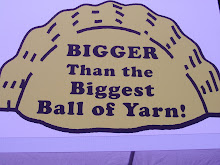June Cleaver as it may sound, much of my preparation for the upcoming Rosh Hashanah holiday has come in the form of cooking for a dinner party I'm throwing. My freezer is jam-packed with kugel and honey cake and my weekend plans revolve around making tzimmes and grocery shopping.
While it might sound like a trival and impious way to get ready for a holiday where we ask God to keep us alive for the coming year and forgive our sins, food ranks pretty high in my overall Jewish identity. I keep kosher to a certain extent, I pride myself on my matzah ball soup and I have the kosher BBQ joint on speed dial.
In all the measuring, slicing and mixing of the last week, one flavor dominated throughout the recipes - that of sweetness. If we associate anything with Rosh Hashanah at our dinner tables, it's the stuff of toothaches that unites us all. From apples dipped in honey to raisin and date-laden breads and umpteen desserts, it seems the more grams of sugar we consume, the more likely we are to have the sweetness jump off the table and into our lives for the coming year.
This comes of course, in razor-sharp contrast to the prayers we chant in the synagogue before, during and after Rosh Hashanah (especially as we mentally prepare for the solemnity of Yom Kippur). During these Days of Awe, we recognize our smallness in the universe, admit to an alphabetic litany of sins and pray that God the King preserves our lives for the coming year. It's not exacty easy.
Rosh Hashanah's sweetness also provides a culinary foil to other Jewish holidays similarly obsessed with food. On Pesach, bitter herbs and salty water rule the seder table as we imagine ourselves as slaves in Egypt. Each Shabbat, we sprinkle challah with salt, again remind us of life's hardships and the setbacks the Jewish people have suffered. And then there's at least six fast days when we plain don't eat.
Achieving balance in life seems more a Taoist principle than one associated with the religion of Abraham who was asked to sacrifice his long-awaited son or Jacob who literally wrestled an angel. But I truly believe that in the development of Jewish customs (and especially the food traditions), we found a way to balance the hard with the easy, the bitter with the sweet.
May we all be inscribed in the Book of Life for a happy, healthy and sweet new year! Shana Tova!
While it might sound like a trival and impious way to get ready for a holiday where we ask God to keep us alive for the coming year and forgive our sins, food ranks pretty high in my overall Jewish identity. I keep kosher to a certain extent, I pride myself on my matzah ball soup and I have the kosher BBQ joint on speed dial.
In all the measuring, slicing and mixing of the last week, one flavor dominated throughout the recipes - that of sweetness. If we associate anything with Rosh Hashanah at our dinner tables, it's the stuff of toothaches that unites us all. From apples dipped in honey to raisin and date-laden breads and umpteen desserts, it seems the more grams of sugar we consume, the more likely we are to have the sweetness jump off the table and into our lives for the coming year.
This comes of course, in razor-sharp contrast to the prayers we chant in the synagogue before, during and after Rosh Hashanah (especially as we mentally prepare for the solemnity of Yom Kippur). During these Days of Awe, we recognize our smallness in the universe, admit to an alphabetic litany of sins and pray that God the King preserves our lives for the coming year. It's not exacty easy.
Rosh Hashanah's sweetness also provides a culinary foil to other Jewish holidays similarly obsessed with food. On Pesach, bitter herbs and salty water rule the seder table as we imagine ourselves as slaves in Egypt. Each Shabbat, we sprinkle challah with salt, again remind us of life's hardships and the setbacks the Jewish people have suffered. And then there's at least six fast days when we plain don't eat.
Achieving balance in life seems more a Taoist principle than one associated with the religion of Abraham who was asked to sacrifice his long-awaited son or Jacob who literally wrestled an angel. But I truly believe that in the development of Jewish customs (and especially the food traditions), we found a way to balance the hard with the easy, the bitter with the sweet.
May we all be inscribed in the Book of Life for a happy, healthy and sweet new year! Shana Tova!


No comments:
Post a Comment